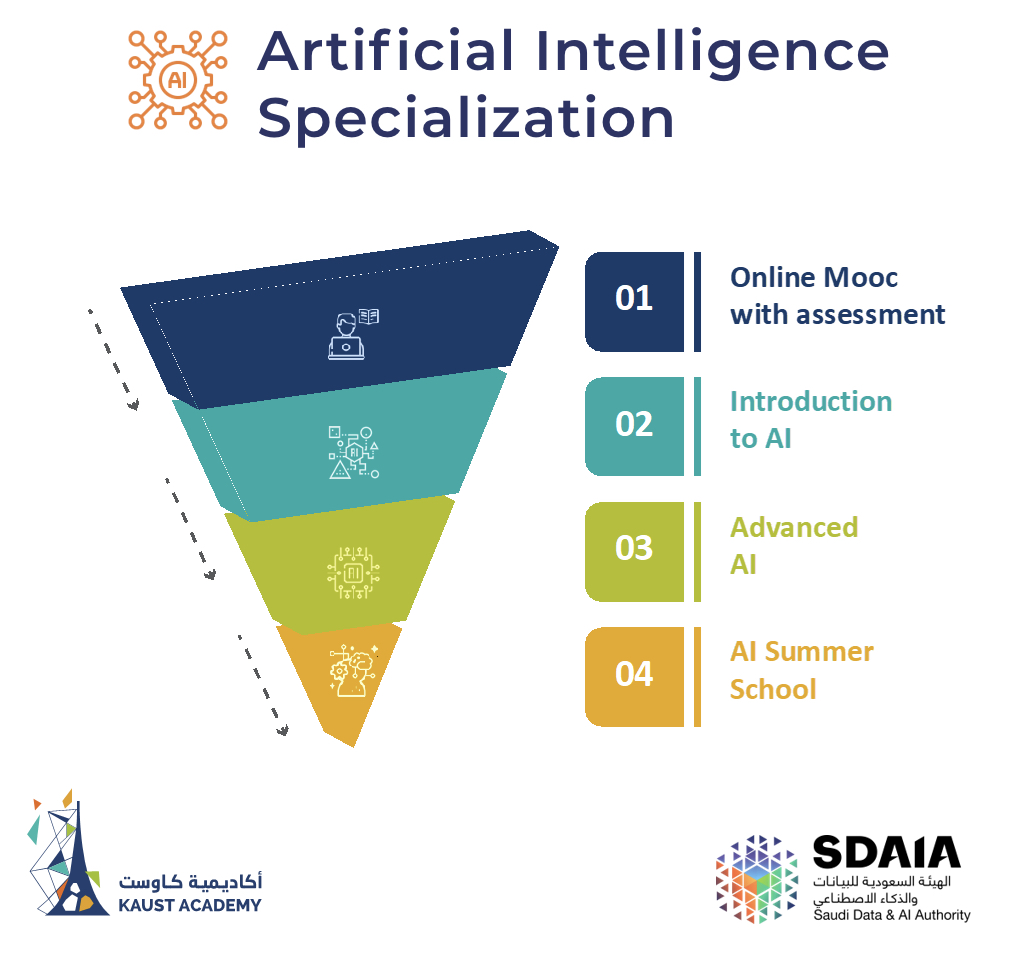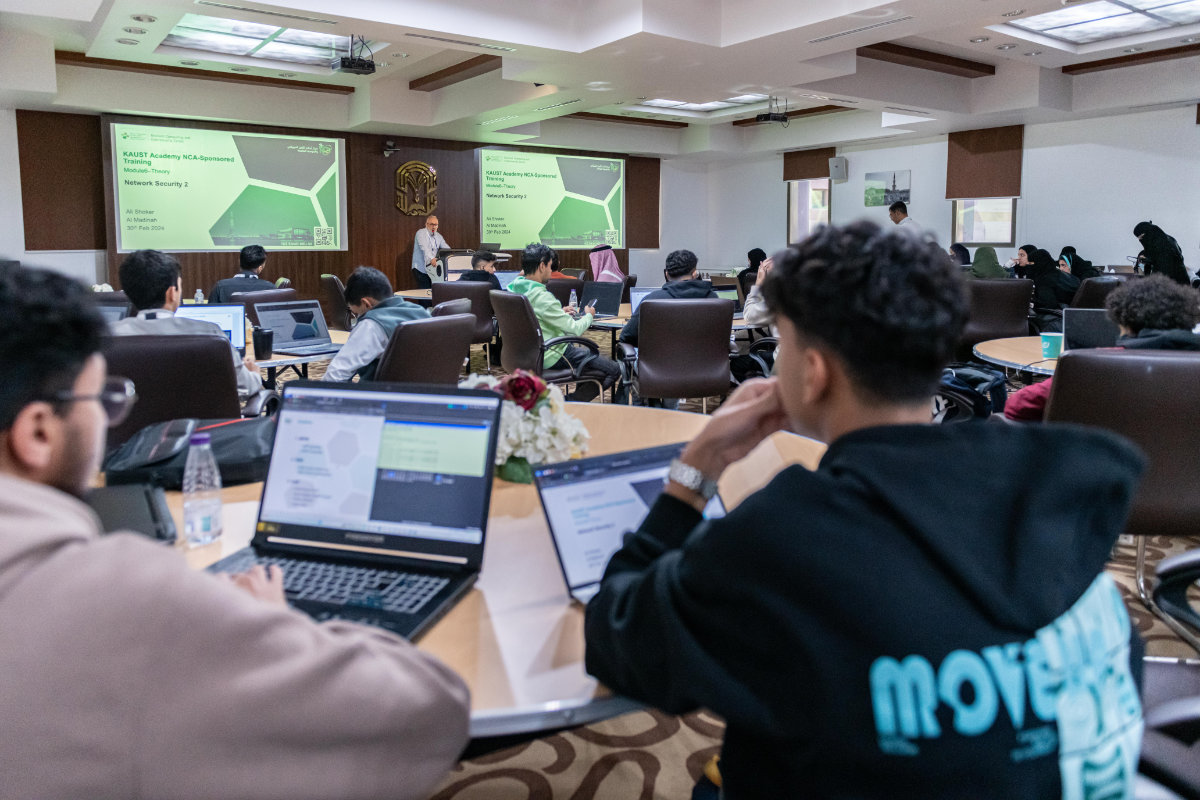RIYADH: Saudi Arabia’s education sector is undergoing a strategic transformation, with a focus on specialized fields such as artificial intelligence, robotics and nuclear energy.
This initiative, in line with the Vision 2030 economic diversification plan, is a crucial step in providing the Kingdom’s future workforce with the in-demand skills needed to secure the jobs of tomorrow.
Mansour Ahmed, managing director for the Middle East and North Africa at Canada-based professional services and management firm Colliers, says the shift to AI and technology is creating new jobs and spurring higher education reform.

“Graduates with expertise in these fields will fill in-demand roles and help reduce youth unemployment,” Ahmed told Arab News.
Saudi Arabia launched a national strategy on data and artificial intelligence in 2020, targeting $20 billion in investment and training 20,000 AI and data experts by 2030.
Ahmed said the emergence of this highly skilled workforce would help attract foreign investment and “position Saudi Arabia as a potential leader in innovation”.
AI could add more than $320 billion to the Middle East economy. Saudi Arabia is expected to see the largest gain in absolute terms, worth $135.2 billion, while the UAE will see the largest overall impact, at 14% of its projected 2030 GDP, according to PWC analysis.
“The development of nuclear power plants and the integration of AI across sectors will create specialized roles in engineering, data analytics and machine learning,” Ahmed said. “This highlights the need to prioritize education in technology, AI, robotics and nuclear energy.”
This section contains relevant reference points placed in the (comments field).
Saudi Arabia has solidified its commitment to future technologies by becoming a hub for global events and forums such as LEAP (Liberal Artificial Intelligence Summit), an international exhibition and conference on artificial intelligence and cloud computing.
But if the kingdom wants to lead in these specialized fields, it must first bridge the gap between market demand and educational outcomes.
According to a report by Colliers, the current enrollment distribution at Saudi Arabia's public universities is “out of sync with the talent market”, with students still favoring humanities and Islamic studies.

Now that’s changing. While King Abdullah University of Science and Technology has an AI initiative focused on research and graduate-level education, the KAUST Academy focuses on developing talent in AI through programs aimed at external learners.
“KAUST aims to bridge this gap by providing professional training and development programs in high-demand fields, helping students transition from traditional academic fields to fields more relevant to the market,” Sultan Al-Barakati, director of the KAUST Academy, told Arab News.
“We focus on developing the skills of a broad range of undergraduates to prepare them for the future job market.”
Did you do it?know?
Saudi Arabia’s national strategy on data and artificial intelligence aims to attract $20 billion in investment by 2030.
Thailand plans to train 20,000 AI and data experts within 10 years.
AI could add more than $320 billion to the Middle East economy, with Saudi Arabia alone benefiting by $135.2 billion.
Supported by the Saudi Data and Artificial Intelligence Authority, KAUST Academy’s AI program covers the full spectrum of subjects from essential to advanced levels, with projects that allow students to demonstrate the knowledge they have acquired.
The program focuses on improving your skills in core areas such as deep learning libraries, optimization, linear algebra, machine learning, computer vision, artificial intelligence applications, Python programming, and large-scale deep learning.
To support AI research in Saudi Arabia, Silicon Valley tech giant Google recently awarded five seed grants to KAUST faculty. The grants, totaling $100,000, will fund projects focused on multilingual, multimodal machine learning, particularly generative and large-scale language models.

KAUST Academy focuses on developing talent in the AI field through programs targeting external learners. (Provided)
Ahmed said Saudi Arabia's investments in AI span across sectors including healthcare, robotics, manufacturing and services, and that new roles that combine technical and analytical skills are emerging.
“This cross-industry application will greatly expand the employment opportunities for graduates,” he said.
AI is expected to transform the world of work in the coming years. According to the World Economic Forum’s Future of Jobs Report 2023, approximately 23% of jobs are expected to change by 2027, with 69 million new jobs being created and 83 million jobs being lost.
Saudi Arabia’s human capacity development program has begun reviewing higher education degrees based on recent and projected employability outcomes to align educational outcomes with labour market needs.
“Training in these in-demand skills will prepare Saudi citizens to thrive in a technology-driven economy, and the HCDP emphasizes critical thinking, problem solving and technical expertise,” Ahmed said.

